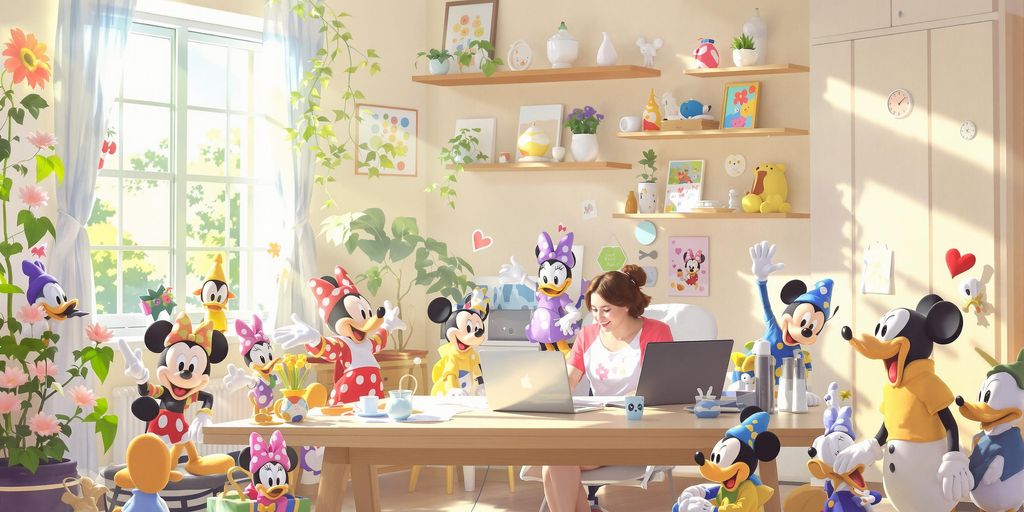What if your bedroom studio could become the launchpad for a thriving career in the $30 billion music industry? With over 80% of new tracks now created outside traditional facilities, the path to becoming a music producer has radically changed. This guide reveals what it takes to turn beats into paychecks by 2025.
The rise of home studios means more creators are building careers without big-label backing. You’ll need technical expertise in tools like Digital Audio Workstations, but success also demands business savvy and networking skills. While average salaries start near $32k, top producers earn significantly more by mastering both creative workflows and project management.
This isn’t just about making great tracks. Producers now handle everything from artist recruitment to final mastering. Tools like polished film production resume templates help showcase this versatility to potential employers. We’ll break down how to highlight your unique value in a competitive market.
Key Takeaways
- Independent creators dominate modern music production, with home studios producing most new tracks
- Global industry growth creates fresh opportunities for skilled producers through 2025
- Technical DAW mastery combines with project leadership skills for career advancement
- Salary potential grows with specialization in mixing, mastering, or niche genres
- Strategic self-promotion tools elevate your professional profile
Understanding the Music Producer Role in 2025
The heartbeat of every chart-topping track lies in the hands of today’s music architects. Producers now balance technical precision with creative leadership, guiding projects from raw demos to radio-ready releases.
Key Responsibilities and Daily Tasks
You’ll shape entire soundscapes by selecting instruments, structuring arrangements, and directing vocal performances. Daily tasks include troubleshooting technical issues during recording sessions and making critical decisions about mixing approaches. Many producers also coach artists on delivery styles while managing session timelines.
Modern roles require overseeing digital distribution strategies and optimizing tracks for streaming algorithms. Tools like collaborative music production platforms help streamline these workflows. Your creative input directly impacts whether a song resonates with listeners or gets lost in the noise.
Industry Trends and Future Outlook
The $10 billion U.S. music production sector now prioritizes producers who master home studio setups and social media promotion. Over 65% of professionals work as creative partners rather than traditional service providers, often co-writing songs and developing artist brands.
Emerging opportunities include coaching independent creators through release strategies – skills similar to those detailed in this film director job guide. Producers who adapt to genre-blending trends and AI-assisted mastering tools will dominate 2025’s landscape.
Optimizing Your Resume and Application Process with RoboApply
Your portfolio’s quality means nothing if hiring managers never see it. Modern music career advancement demands polished application materials that blend technical expertise with personality. This is where smart tools like RoboApply transform how you present your creative value.

Build Applications That Get Heard
RoboApply’s AI resume builder crafts documents highlighting your producer strengths. Input your DAW mastery, mixing credits, and collaborative projects. The system structures this data into ATS-friendly formats while preserving your unique voice. One user landed three interviews weekly after optimizing their music career timeline this way.
The cover letter builder personalizes applications at scale. Describe your work on a synth-heavy indie album or hip-hop beat licensing deal. RoboApply tailors these stories to match specific job descriptions. Its grammar checker ensures technical terms like “stem mastering” or “MIDI mapping” read professionally.
Track every opportunity with RoboApply’s dashboard. The auto-apply Chrome extension submits personalized applications in one click. Meanwhile, the outreach CRM helps nurture connections at labels – similar strategies work for social media manager roles. Producers using these tools report 40% faster response rates from studios.
Essential Skills and Tools for Aspiring Music Producers
Building a competitive edge starts with the right gear and expertise. Today’s chart-ready tracks emerge from strategic combinations of affordable tools and polished techniques. Let’s break down what you need to craft professional-grade music without breaking the bank.
Must-Have Equipment and Home Studio Essentials
Start with a laptop capable of running Digital Audio Workstations smoothly – 8GB RAM minimum. Pair it with an audio interface like Focusrite Scarlett for clean recordings. The $500-$1,000 range covers essentials:
- DAW software: Ableton Live for electronic genres, Logic Pro for vocal-heavy projects
- Studio headphones (Audio-Technica ATH-M50x) and budget monitors (PreSonus Eris 3.5)
- Condenser microphone (Neat King Bee II) for crisp vocal takes
Developing Technical and Creative Skills
Master your DAW’s shortcuts and plugins through daily 30-minute drills. Study music theory basics on platforms like Skillshare – chord progressions and rhythm patterns form your creative backbone. Practice mixing techniques by recreating reference tracks, focusing on EQ balance and stereo imaging.
Collaborate with vocalists using cloud tools like Splice to sharpen sound design skills. Analyze top beats on BeatStars to understand current trends. Those transitioning from video editing roles often find their timeline management skills transfer well to music projects.
Strategies to Ace the Interview and Showcase Your Talent
Your final audition begins the moment you walk into the interview room. Industry leaders want producers who blend technical mastery with collaborative energy. Let’s explore how to turn these conversations into career-defining opportunities.

Interview Preparation and Communication Tips
RoboApply’s interview coach simulates real-world scenarios through AI-powered mock sessions. Practice answering questions like “Walk me through your beat-making process” while receiving instant feedback on pacing and clarity. One user improved their response accuracy by 68% after 10 practice rounds.
Prepare stories using this framework:
- Challenge: “The artist wanted trap elements in a folk track”
- Action: “I layered 808s under acoustic guitar using sidechain compression”
- Result: “Streaming platforms added the song to 3 editorial playlists”
Review common executive producer interview questions to anticipate technical discussions about budgets or timelines.
Demonstrating Creative and Technical Prowess
Bring a tablet loaded with before/after audio examples. Play a raw vocal take followed by your mixed version, explaining your EQ choices. Highlight genre flexibility by showing country tracks and EDM beats in your portfolio.
During live DAW demonstrations:
- Create a drum pattern from scratch in under 90 seconds
- Showcase custom plugin chains for vocal enhancement
- Explain how you adapt mixes for TikTok vs. Spotify formats
Discuss emerging tools like AI mastering services while emphasizing your human touch in shaping artists’ sonic identities.
How to Land a Music Producer Job in 2025
Transform your creative workflow into career momentum with targeted strategies. Start by creating weekly content for platforms like TikTok – short DAW tutorials or beat-making sessions attract collaborators. One producer landed sync deals after posting 30-second instrumental hooks that went viral.
Diversify income through ghost production platforms and mixing services. Platforms like BeatStars let you sell tracks anonymously while building capital. Pair this with active networking at conferences like ASCAP Expo – bring business cards with QR codes linking to your portfolio.
Master the art of pitch packages for labels and advertisers. Include:
- Three signature tracks showcasing range
- Streaming performance analytics
- Testimonials from satisfied clients
Use tools like RoboApply’s resume formatting templates when applying for studio roles. Their ATS-optimized layouts help highlight certifications in Dolby Atmos mixing or AI mastering tools.
Negotiate contracts retaining 15-30% royalties on placements. Build long-term partnerships by delivering stems within 48 hours and maintaining clear communication channels. Remember – consistency in quality and professionalism opens more doors than occasional brilliance.
Conclusion
Your journey from beat-maker to professional creator starts here. This roadmap equips you with everything needed to thrive in modern music production – technical skill development, industry insights, and smart promotion strategies. With RoboApply’s AI tools optimizing resumes and interview prep, you’ll spend less time applying and more crafting signature sounds.
The $30 billion industry rewards those who blend home studio mastery with business savvy. Whether shaping chart-topping tracks or coaching emerging artists, your career growth hinges on continuous learning. Platforms like Splice for collaboration and BeatStars for licensing prove independent creators now lead the music revolution.
Success demands equal parts technical precision and human connection. Perfect your DAW shortcuts while building relationships through TikTok tutorials and industry events. Let RoboApply handle application logistics so you focus on what matters – turning raw ideas into polished arrangements that move listeners.
2025’s landscape favors adaptable creators ready to evolve. Start today by refining three core skills: genre-blending production techniques, AI-assisted workflows, and strategic self-promotion. Your next producer credit could be one optimized application away.
FAQ
What equipment do I need to build a competitive home studio in 2025?
Focus on a reliable DAW like Logic Pro or Ableton Live, studio monitors (KRK Rokits or Yamaha HS series), and an audio interface like Focusrite Scarlett. Add a MIDI controller (Akai MPK Mini) and quality microphones (Shure SM7B) for vocal tracking. Acoustic treatment panels from brands like Auralex are essential for sound clarity.
How can AI tools like RoboApply help my music producer job applications?
RoboApply’s AI scans job descriptions to tailor your resume with keywords like “mixing/mastering” or “beat programming.” It optimizes your cover letter by aligning your experience with specific roles, whether you’re applying to Sony Music or indie labels. The tool also suggests skill gaps to address before submitting.
What technical skills will employers prioritize for music producers in 2025?
Expertise in spatial audio mixing (Dolby Atmos), AI-assisted production tools (LANDR, iZotope), and hybrid analog/digital workflows will stand out. Knowledge of distribution platforms like DistroKid and TikTok’s audio algorithms is equally critical. Showcase versatility by listing certifications in Pro Tools or FL Studio.
How should I prepare to demonstrate my production skills during interviews?
Create a 3–5 track portfolio highlighting diverse genres and technical range. Use platforms like SoundCloud or Bandcamp for easy access. During live assessments, walk through your creative process for a track—mention how you used compression in Universal Audio plugins or automated reverbs in Ableton.
What industry trends should I address in my 2025 job applications?
Highlight experience with immersive audio formats (VR/AR sound design), AI collaboration tools (Splice’s AI stems), and sustainability in studio workflows. Labels like Warner and Interscope increasingly value producers who can optimize sessions for energy efficiency or remote collaboration.
Is formal education required to land a music producer role in 2025?
While degrees from Berklee or Full Sail University help, 72% of hiring managers prioritize hands-on experience. Build credibility through freelance projects, remix contests (like Splice’s challenges), and certifications from platforms like Coursera (for music business) or Output’s production courses.
How do I network effectively as an aspiring producer next year?
Engage in Discord communities (EDMProd, r/WeAreTheMusicMakers), attend AES conventions, and collaborate on platforms like Kompoz. Use LinkedIn to connect with engineers at Spotify or SoundCloud—share your work and ask for feedback. Cold-pitch artists on Vocalizr or AirGigs to build your credits.


















